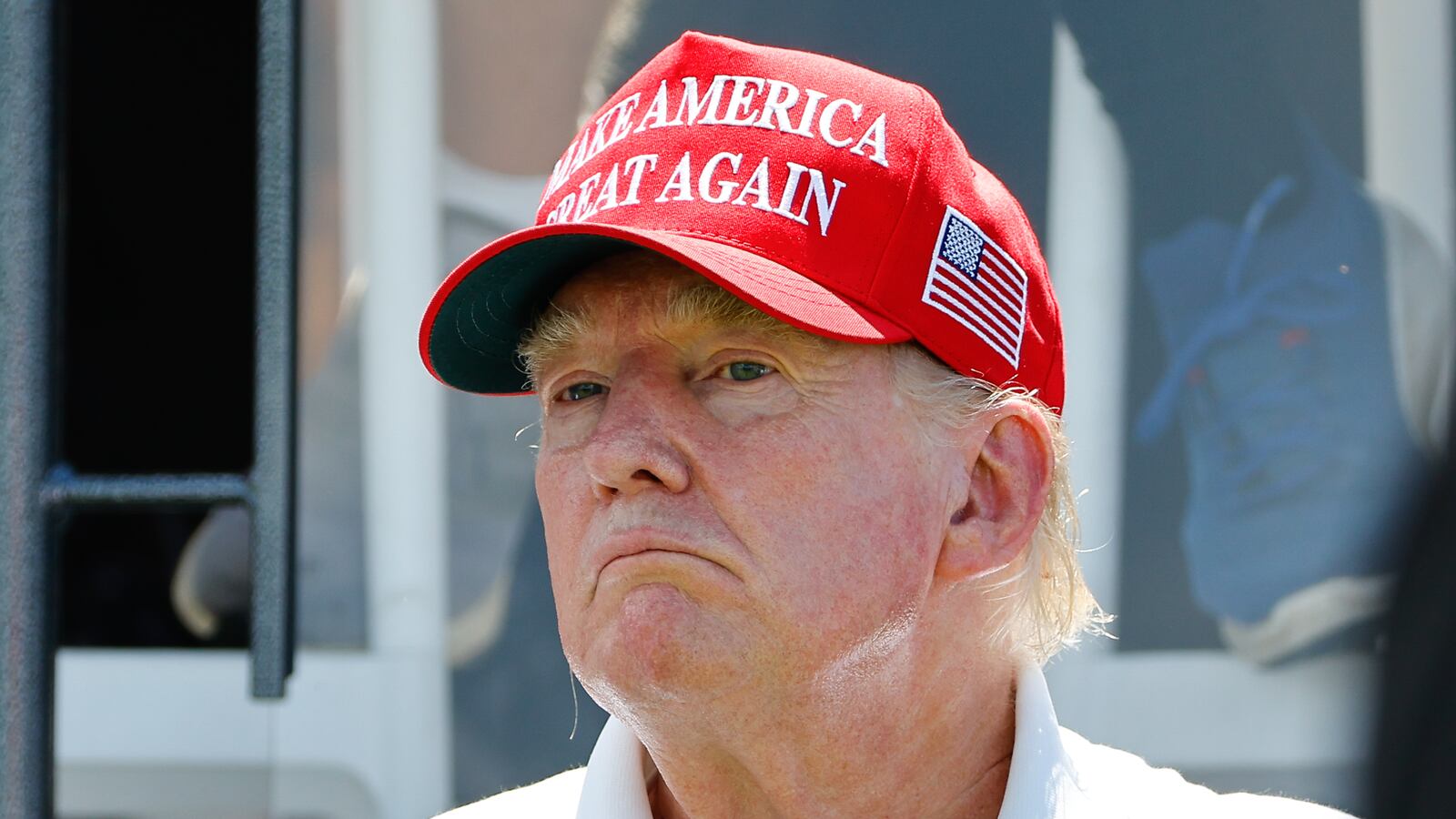Donald Trump, ever the showman, did everything he could to turn his three-month New York bank fraud trial into a circus. And he intended to finish off this spectacle with a little less P. T. Barnum and a little more Perry Mason, dramatically closing the case on Thursday by making the exceedingly rare—and ill-advised—decision to deliver his own closing arguments.
Alas, reality isn’t a weekly, hour-long 1950s CBS television legal drama.
On Wednesday, just a day before the last scheduled hearing in the case, court filings revealed how talks completely broke down between Trump’s lawyers and Justice Arthur F. Engoron.
Emails filed in court show that the judge tentatively approved Trump’s request that he make a formal appearance in court to make the case’s final argument on his own—as long as he’d follow the same rules his defense lawyers would.
“Closing arguments are for an advocate to comment on the evidence presented, on the relevant law, and on how the latter applies to the former to justify the result sought. Such arguments may not be used to testify, to introduce new evidence, to make a campaign speech, or to comment on irrelevant matters,” Engoron emailed Trump’s legal team on Tuesday afternoon.
The judge’s warnings came after months of Trump’s unhinged speeches outside the courtroom and social media posts in which the billionaire labeled the judge a leftist hack, insulted the judge’s law clerk, and dismissed the entire trial as an empty political persecution. At every turn, Trump asserted that his personal financial statements were clean as a whistle and that his properties were properly valued—even though evidence shown in court clearly proved otherwise, with an apartment magically tripling in size and fudged numbers scattered throughout.
So while Engoron entertained the idea of having Trump deliver his own closing argument, he wouldn’t let Trump turn his final speech into a theatrical soliloquy. Emails show that the judge met Trump’s latest ploy with cynicism and wariness.
“The limitations I am imposing, in my absolute discretion, are not subject to further debate. Take it or leave it,” Engoron wrote on Tuesday.
Christopher Kise, a former Florida solicitor general who was Trump’s lead defense lawyer at trial, initially indicated that Trump would indeed show up and speak. But when the judge pressed him to make clear that Trump would follow the rules, Kise shot back with the whininess that has become his trademark since the trial’s start in October.
“That is very unfair, your Honor,” he shot back. “You are not allowing President Trump, who has been wrongfully demeaned and belittled by an out of control, politically motivated Attorney General, to speak about the things that must be spoken about.”
But the judge wouldn’t have it.
“Dear Mr. Kise,” he wrote back midday Wednesday, “I won’t debate this yet again. Take it or leave it. Now or never. You have until noon, seven minutes from now. I WILL NOT GRANT ANY FURTHER EXTENSIONS.”
When Kise didn’t respond, the judge officially nixed the whole misadventure.
“Not having heard from you by the third extended deadline (noon today), I assume that Mr. Trump will not agree to the reasonable, lawful limits I have imposed as a precondition to giving a closing statement above and beyond those given by his attorneys, and that, therefore, he will not be speaking in court tomorrow,” Engoron wrote.







